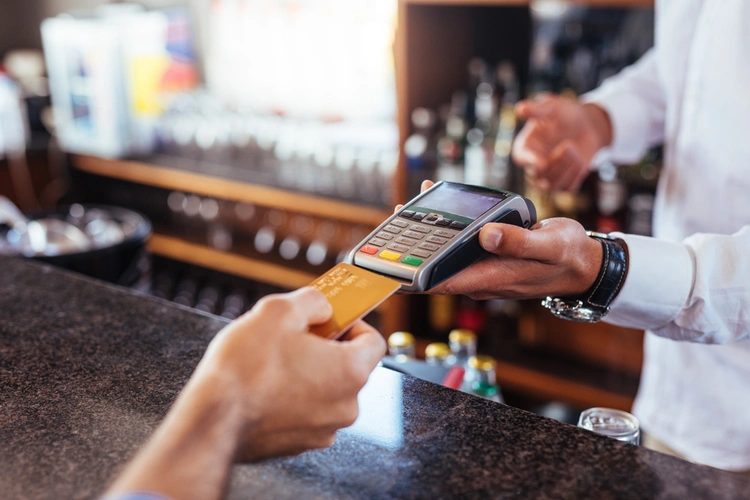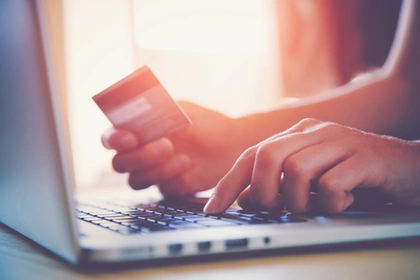What should I use a credit card for?
Some ideal purposes for a credit card include:
- spreading the cost of a large purchase
- protecting your payments
- building your credit score
- emergency funds
- deposit for car rentals or holidays
- collecting rewards.
If you’re thinking about getting a credit card because you want to buy things such as big non-essential purchases, it’s best to avoid them. This is because you’ll end up acquiring more debt which can become difficult to pay off.
1. Spread the cost of a large purchase
Using a credit card for this can help you keep up your finances and break down repayments into more affordable chunks.
For example, if you wanted to buy a new sofa which cost £1,500, but you didn’t want to pay all at once or have enough in your account, you could put it on a credit card and pay it back over time. You can even get cards that will have low or 0% interest for a certain period, depending on your eligibility.
2. Protect your payments
Another reason to spend on a credit card is that payments over £100 can be protected. This is in circumstances such as:
- the item didn't get delivered
- it was broken or faulty
- the retailer went bust.
This is due to Section 75 of the Consumer Credit Act, which means that in certain circumstances the credit card provider could get your money back.
3. Build your credit score
If you have a poor credit history or no credit history at all, you might find it difficult to get a mortgage or loan in the future. Using a credit card responsibly can help you build up your credit score.
There are credit cards designed for those with a less-than-perfect or thin credit history, to help build your credit score. Providing you only spend what you can afford to repay, stay within your limit and make your repayments on time, you’ll be able to build your score over time by showing you’re a responsible borrower.
Credit building credit cards do tend to come with a higher interest rate than mainstream cards, to balance out the risk of lending. The good news is that once you’ve boosted your score, you could be eligible to apply for lower interest rate products.
4. Emergency funds
Credit cards can be a useful tool if an emergency occurs and you don’t quite have the cash to pay for it.
For example, if you need emergency dental work or your boiler breaks down, using your credit card can help you sort what you need at that moment in time. It’s important to then prioritise these monthly payments to get back on track.
5. Deposit for hotels or car rental
Some hotels, car rentals and accommodation services may need you to provide your credit card details in order to hold a deposit. Having a credit card will make this much easier – the funds are held but not used (unless any damages occur later).
It could also be a good idea to book any flights or events on a credit card as well. If your booking gets cancelled, your money will be protected, so it will be easier to claim back should the company not be able to refund you.
6. Collecting Rewards
Some credit cards offer customers different rewards. This can be things like:
- cashback
- points
- special offers.
While this can be tempting, make sure you’re not distracted by these offers. Try to look for a credit card that is suitable for you. A lot of reward cards are reserved for those with a strong credit score, so make sure you use a risk-free eligibility checker before making an application.
What shouldn’t you use a credit card for?
A credit card can be a great product if used for the right reasons, but it should be avoided for:
- unnecessary purchases that you can’t afford – a credit card is a form of borrowing, so you will always need to pay it back, so ensure you can always make your monthly repayments on what you buy
- cash withdrawals – the vast majority of credit cards charge a fee on cash withdrawals and this can end up very costly
- as a solution to stay afloat – if you’re struggling with debt, it could be best to look at other solutions. A credit card isn’t best used for day-to-day expenses in this situation, there are better debt solutions available. You can contact a charity like StepChange for free and impartial debt advice
Ocean Credit Card
See if it's a YES before you apply
- Up to £8,000 credit limit
- Checking won't affect your credit score
- Get a response in 60 seconds
39.9% APR
Representative (variable)
Intelligent Lending Ltd (credit broker). Capital One is the exclusive lender.

Disclaimer: We make every effort to ensure content is correct when published. Information on this website doesn't constitute financial advice, and we aren't responsible for the content of any external sites.




